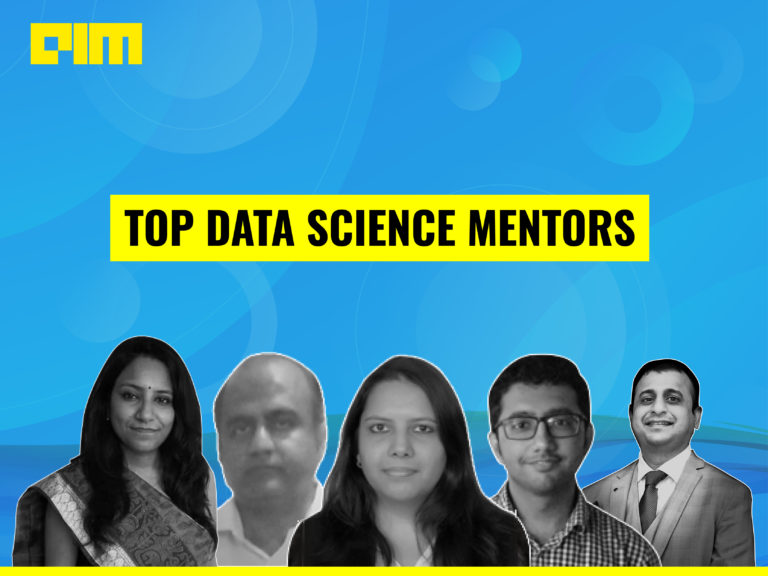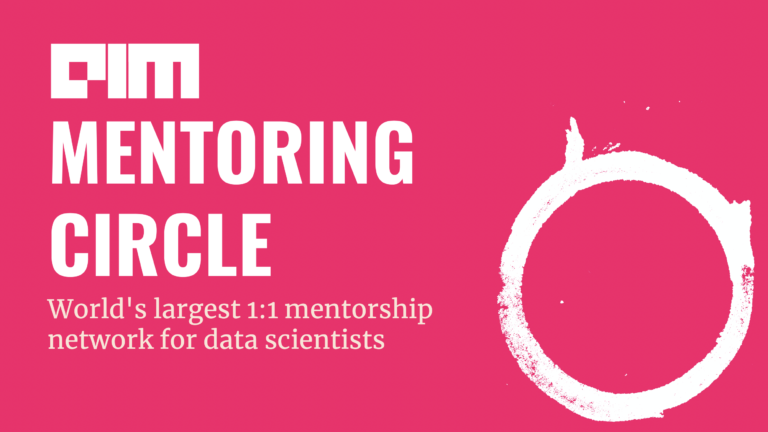Mentorship has many benefits in the data science industry. For young data, science enthusiast mentoring can not only fill their knowledge gap about the real world industry but can also help in improving their skills and core understanding of using data science for businesses. For organisations, having a mentoring program can help in enhancing the teamwork between employees and to improve employee skills.
In a typical mentoring session, older executives and data scientists with greater seniority take in young mentees who are enthusiastic about learning data science. However, with the progress in technology and more executives from generation X and Y coming in the forefront of the workforce, ‘reverse mentoring’ has stood out to be beneficial for several organisations.
Reverse mentoring is a contemporary process of mentorship that relies on role reversals between a mentor and a mentee. Reverse mentoring usually happens when a younger executive mentors somebody who is comparatively more experienced but isn’t knowledgeable about the same skill set as the younger employee, such as learning new software or new technology.
This has been considered to be one of the most effective ways to create visibility of upcoming leaders to top executives. In this article, we are going to list down the benefits of reverse mentoring in the field of data science.
New Tech New Teachers
Since its inception, in 1999 by Jack Welch — during his tenure as CEO of GE, reverse mentoring acted as a process of bridging the gap between the generations, which was being created by the advent of technology. Keeping pace with dynamic shifts in technological change is indeed difficult. With reverse mentoring companies can pair up younger executives with experienced business leaders to facilitate knowledge and to break their traditional habits and get them used to the newer technology drive of the industry.
Embracing collaboration can improve the competitive advantage of a business. It allows older executives to stay up to date on more modern technologies and with the workplace getting more urbanised, reverse mentoring can help these older or traditional folks to adapt to changing workplace technologies and trends. Newer businesses believe that there is a lot to be learned from younger employees, especially from millennials and generation Z who have grown up with technology, which in turn, can benefit the whole organisation in this digitised landscape.
Increasing Retention Of Millennials
Millennials, currently, are the largest generation in the labour workforce; however, according to reports, companies are struggling to engage or even retain their millennial employees. Along with flexible work environments and comfortable ecosystem, these millennials are hungry for knowledge and demand continuous learning and skill development, and of course, quicker opportunities for career advancement. And that’s where reverse mentoring plays a considerable role.
Inverting the traditional hierarchy by allowing younger executives to mentor more experienced ones can help the organisation create more value for their millennial workforce. It will also help younger executives to have clear access to networks with senior and accomplished leaders, which can enhance their career paths in the future. Reverse mentoring will improve millennial’s confidence in their organisation, in turn, help the company to reduce their attrition rate of millennials, and might even find their future leaders.
Build Social Culture Within The Workplace
Reverse mentoring has proved to be a perfect way to build and enhance social capital within the workplace. By pairing senior leaders and experienced employees with younger executives from different backgrounds will not only develop empathic perspectives from both sides but also, gradually, omits the unwanted awkwardness between the different generation of employees. It will foster better communication and collaboration in everyday interactions and will incubate a diverse pipeline of talent for both lower and upper-level management across the organisation.
Reverse mentoring gives a reality check for older and experienced employees and thus will provide the opportunity to hone and refine their leadership practices, based on feedback and discussions with their younger colleagues. Also, since reverse mentoring is considered to be a relaxed affair, it surely gives the senior leaders a welcome break from the norm, where they can interact and discuss their work with someone younger and with fresh ambition.
Saving On Development
Training and development programs with external resources can be a costly affair for businesses, especially the ones that are still budding. So, if an organisation is limited to its budget for upskilling their employees, this more informal approach of reverse mentoring could be extremely beneficial. Here, younger mentors get together with older mentees for coffee or chitchat to process knowledge about newer technologies and urbanised business processes.
Reverse mentoring programs are a cost-efficient approach to enhance the engagement of your workforce and to develop the skills of your employees by creating a training culture, which increases productivity. With agreed objectives, reverse mentoring can be a great way of learning without busting the all-important balance sheets!
Two Way Street
Reverse mentoring is considered to be a two-way learning process, where both the younger mentor and older mentee can be benefited by working closely. Each of the people, whether it be the younger executive or the senior leader, see life through very different perspectives. With this process, both can learn ways to build relationships and communicate with colleagues of different levels. With this two-way learning process, both sides can not only learn the viewpoints of the other person from a different generation but also can gain self-confidence.
Reverse mentoring also promotes the inclusion of diversity, facilitates cross-generation relationships, increases communication and enhances engagement across generations. This process presents a major cultural shift among traditional workplace and implementing the same will indeed benefit the organisation. Additionally, reverse mentoring builds the resilience of the business, boosts the reputation of the organisation, and minimises the problems related to retention by bringing in diverse employee generations.



















































































